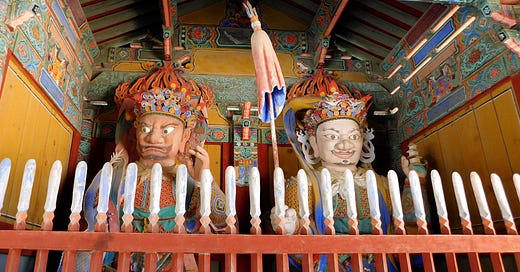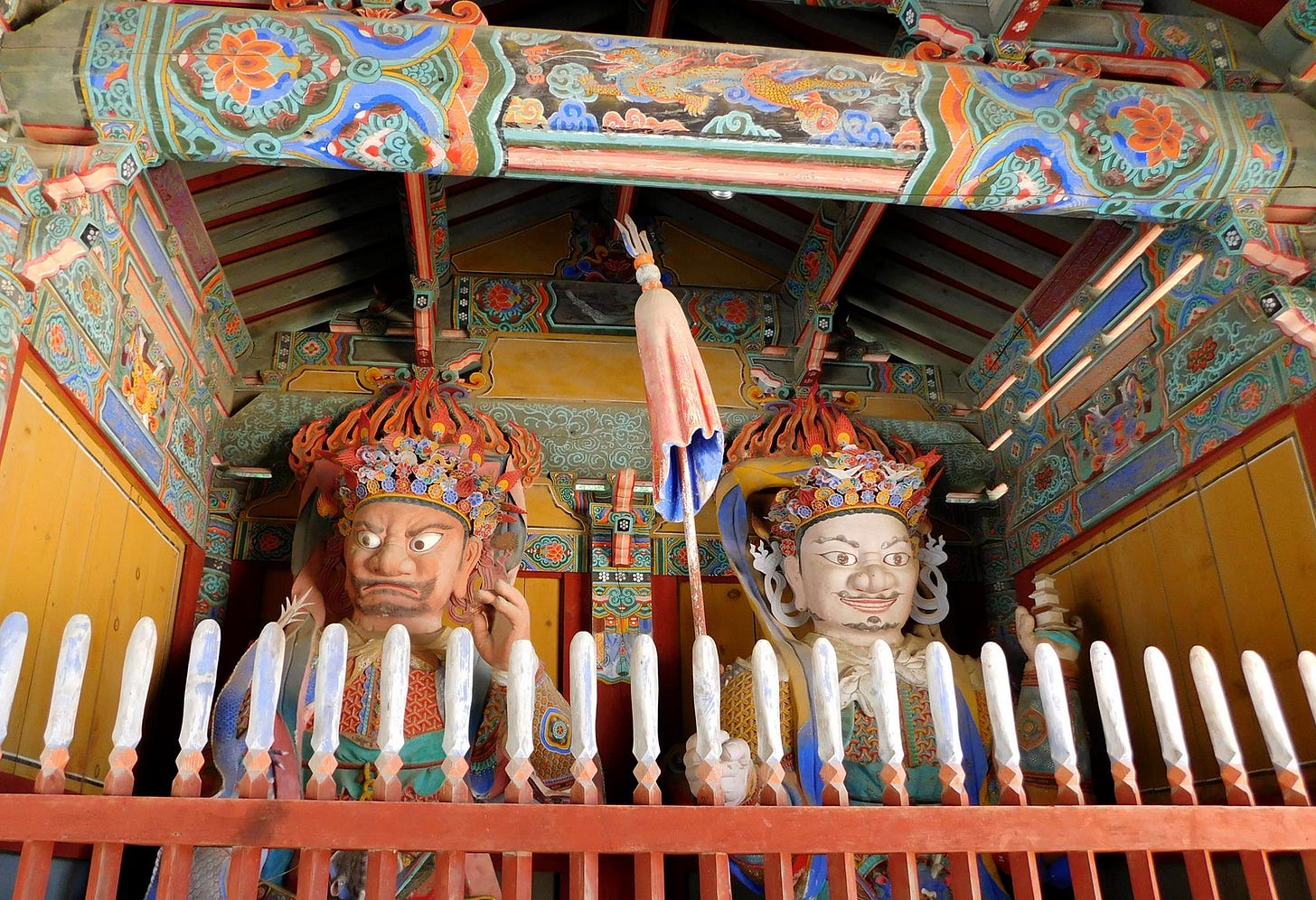Thanks for reading! This is part of my series on moral cultures. Check out the archives or links below for other entries. And don’t forget the Tip Jar.
In the last installment, we laid out the prevailing moral culture of traditional East Asian society, and compared and contrasted it with cultures of honor and dignity.
Now, on to the question of whether victimhood culture is rising or even can rise in East Asia.
As a reminder, Campbell and I use that term to refer to a moral sphere marked by high sensitivity to slight, high dependence on authorities to handle conflict, and a tendency to emphasize or exaggerate one’s victimization — including one’s fragility, neediness, or oppression. As with all these cultures, it’s a matter of degree, and might be seen in its highest degrees in some parts of society but not others. I list some behaviors indicative of victimhood culture in this previous post.
Also note I’m thinking here mostly in terms of how people handle everyday conflicts and/or what mechanism institutions are set up for handling them. I’m less concerned with national victimization narratives and their use on the international stage, as when Korean officials demands Japanese officials acknowledge the horrors of Imperial Japan’s occupation of Korea.
My information here is limited: I speak and read Korean but I’m not fluent, and I don’t know Japanese or Chinese at all. I’m limited to English language sources, a conversation with a Japanese graduate student, and interactions with my Korean wife’s family and friends.
The Japanese graduate student, who I spoke with at length a few months ago, definitely believed victimhood culture was making inroads in Japanese universities. I’ve seen claims on Twitter about victimhood culture arriving in Korea via cancellations of speakers over accusations of racism, and a Korean friend related a story about a lawsuit that he thought was a good example of victimhood culture.
The background for that story — which I’ll keep vague, but just to be safe it’s behind a paywall below — is a recent moral crusade against bullying in Korean schools.
The Korean Anti-Bullying Movement
There’s recently been a big anti-bullying campaign in South Korea. The campaign was apparently sparked by a popular Netflix series. From the Korea Times:
In the Korean Netflix series, "The Glory," an elementary school teacher seeks vengeance against her former bullies who had targeted her when she was young. The thriller, which achieved phenomenal ratings….is expected to release its second season in March. Part of its popularity is derived from the catharsis Song brings by getting revenge for what she had to endure, such as having her bare skin seared by a hair straightener and being scratched in the chest with a safety pin….The sadistic torture portrayed in the series is based on a true story from a girls' middle school in Cheongju, North Chungcheong Province, in 2006. Bullies in the third grade at the school had also messed up the victim's hair and scratched her hands so badly they later became swollen.
The popularity of the series has led to various people going online to share their own stories of being bullied in school, as well as to publicly denounce prominent people who they say bullied them in the past. From the Japan Times:
Pins hidden in her shoes, head forced down a toilet, kicked in the stomach: Korean hairdresser Pyo Ye-rim suffered a litany of abuse from school bullies, but now she’s speaking out.
The 26-year-old is part of a phenomenon sweeping South Korea known as “Hakpok #MeToo,” through which people who were bullied publicly name and shame the perpetrators of school violence — “hakpok” in Korean — decades after the alleged crimes.
…. In an ironic sign of how pervasive the issue is, after the show became a hit, the director Ahn Gil-ho was himself accused of teenage bullying and forced to apologize.
As with “cancellations” of people in the US, these accusations can result in firings and resignations as organizations rush to dissociate themselves with the accused. Call it a kind of moral amputation.
Most accusations are anonymous but have resulted in bullies being fired or, in the case of one of South Korea’s most successful baseball players, excluded from the national team.
One high ranking government official even resigned after his son lost a bullying case in court:
Chung Sun-sin, a prosecutor-turned-lawyer who was recommended as the new chief of the National Office of Investigation in charge of commanding police investigation teams nationwide, stepped down only a day after being appointed on Feb. 24 following news reports that his son used to bully his dormitory roommate in 2017 while attending a private high school.
Korea already has laws against bullying on the books. But the flurry of attention to the issue has led to new measures. Per this April story from the Korea Herald:
Students with a history of bullying or school violence will have their records reflected in the regular college admissions process starting in 2024, and the current bullying record retention period of two years will be extended to four years after graduation, the government said Wednesday.
The government will also make changes to prevent students from filing administrative lawsuits against their schools, which often result in parents defending their children instead of holding them accountable.
Is serious bullying actually so prevalent? It’s hard to say. The number of reported cases has spiked greatly. From the Korea Herald again:
The policy revisions come as Korea faces an uphill battle against school violence. According to data provided by the Education Ministry, the country experienced a stark increase in bullying cases since 2017, when 31,000 cases were reported. A total of 62,000 school bullying cases were reported last year — doubling in just five years.
As for what type of behaviors fall under the heading of “bullying,” a Ministry of Education survey found that about 42 percent of what they call “violence” in post-pandemic classes is verbal (about 35 percent over the seven years pre-pandemic). About 13 percent is physical (about 11 percent in seven years pre-pandemic). The remainder is stalking and stealing.




